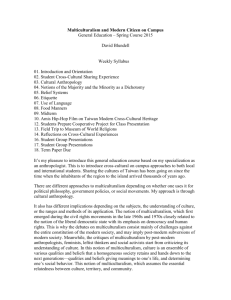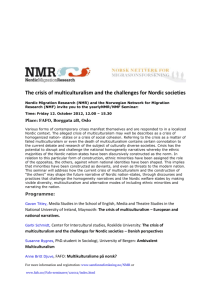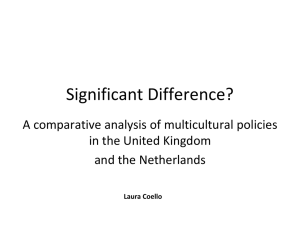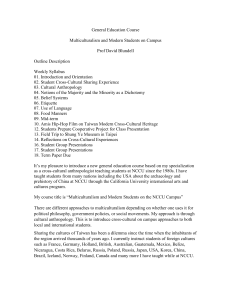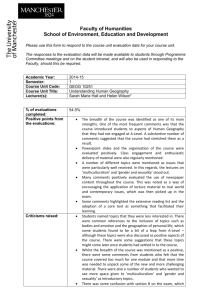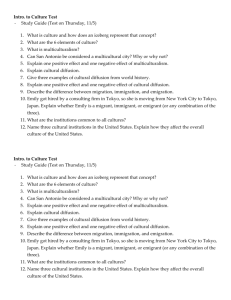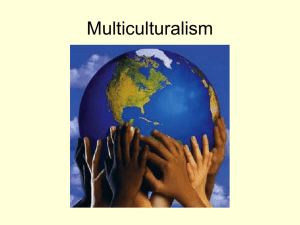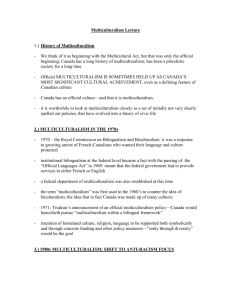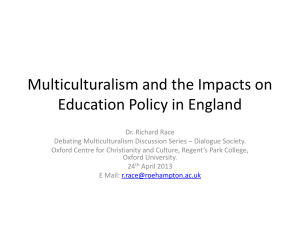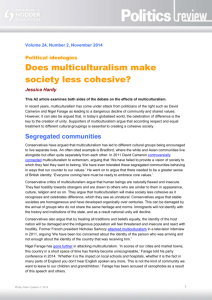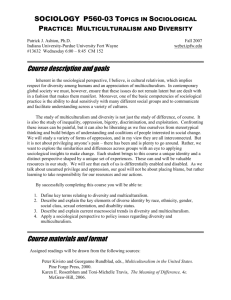Multikulturalitás a XXI. században * SZIE GTK TTI Gödöll*
advertisement
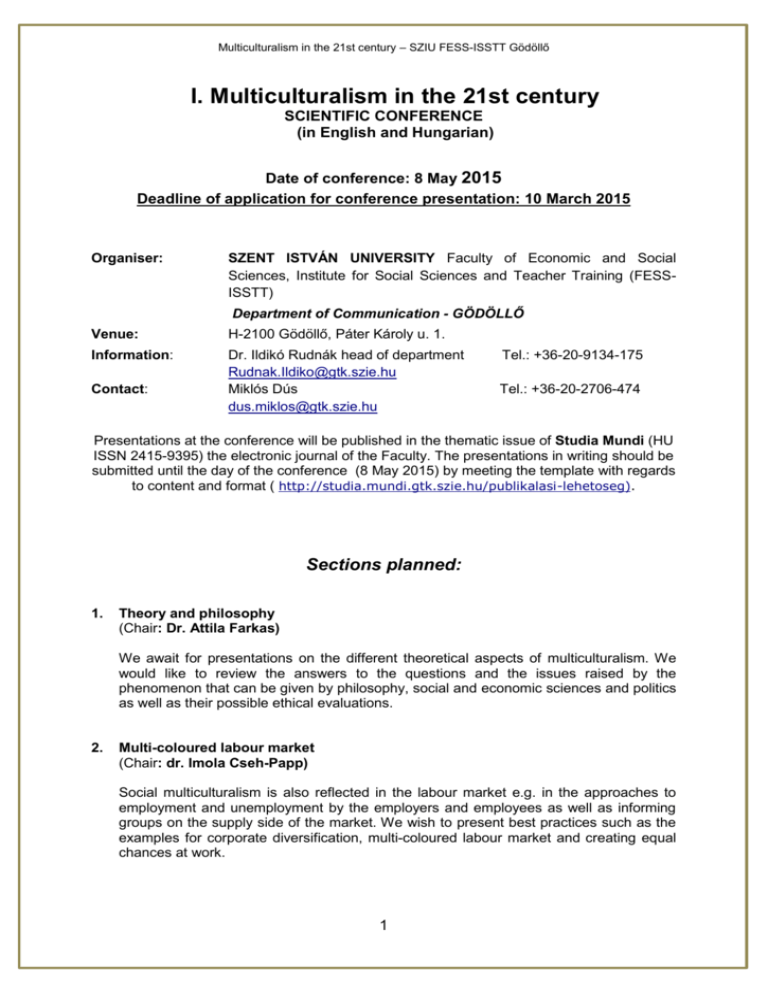
Multiculturalism in the 21st century – SZIU FESS-ISSTT Gödöllő I. Multiculturalism in the 21st century SCIENTIFIC CONFERENCE (in English and Hungarian) Date of conference: 8 May 2015 Deadline of application for conference presentation: 10 March 2015 Organiser: SZENT ISTVÁN UNIVERSITY Faculty of Economic and Social Sciences, Institute for Social Sciences and Teacher Training (FESSISSTT) Department of Communication - GÖDÖLLŐ Venue: H-2100 Gödöllő, Páter Károly u. 1. Information: Dr. Ildikó Rudnák head of department Rudnak.Ildiko@gtk.szie.hu Miklós Dús dus.miklos@gtk.szie.hu Contact: Tel.: +36-20-9134-175 Tel.: +36-20-2706-474 Presentations at the conference will be published in the thematic issue of Studia Mundi (HU ISSN 2415-9395) the electronic journal of the Faculty. The presentations in writing should be submitted until the day of the conference (8 May 2015) by meeting the template with regards to content and format ( http://studia.mundi.gtk.szie.hu/publikalasi-lehetoseg). Sections planned: 1. Theory and philosophy (Chair: Dr. Attila Farkas) We await for presentations on the different theoretical aspects of multiculturalism. We would like to review the answers to the questions and the issues raised by the phenomenon that can be given by philosophy, social and economic sciences and politics as well as their possible ethical evaluations. 2. Multi-coloured labour market (Chair: dr. Imola Cseh-Papp) Social multiculturalism is also reflected in the labour market e.g. in the approaches to employment and unemployment by the employers and employees as well as informing groups on the supply side of the market. We wish to present best practices such as the examples for corporate diversification, multi-coloured labour market and creating equal chances at work. 1 Multiculturalism in the 21st century – SZIU FESS-ISSTT Gödöllő 3. Psychology of interpersonal contacts (Chair: Dr. Ildikó Budavári-Takács) When different cultures meet it is inevitable to take into consideration the psychological impacts of interpersonal contacts such as conflicts between groups, emerging stereotypes, discrimination and aggression. We await presentations in the topic of interpersonal contacts from a psychological point of view whether it is new research result or theoretical review that serves with novel aspects for presenting the psychological problems of meeting cultures. We would also welcome participants who can show best practices for managing intercultural conflicts such as developing personal competencies, skills or abilities. 4. Visual arts and sciences (Chair: Dr. Sára F. Orosz) Similarly to several other scientific branches, there has been a paradigm change in visual arts, as well in the past decades. Stress has been put elsewhere, methods of expression have been broadened and new, novel borders and horizons have been opened up. As a result, it is indispensable that in the process of artistic creation, in classical interpretations of art history, iconography and semiotics the role of analyses in art aesthetics, philosophy, psychology, sociology and other theories has been increasing. In addition, we must not forget that it is the artist and the works of art that are in the centre who cannot be either evaded or lost in the diverse process of analysis. Our section analyses the above mentioned phenomena from the aspect of the artist or the person involved in any phases of creation. 5. Teaching languages and other subjects: the methodological issues of trainings in a foreign language (Chair: Dr. Klára Veres-Valentinyi) BA or MA courses have been taught in a foreign language for several years in higher education institutions in Hungary, which poses challenges for institutions and their teachers, as well. The objective of the section is that the leaders of foreign language training programmes can share their experience and debate their methodological and organisational questions. We also hope to set up the best practices of the trainings in the form of lectures and a roundtable discussion, whose conclusions will be published. 6. Challenges of multicultural teaching and education (Chairs: Ádám Kiss – Eszter Borsos) In our globalising world the issues of teaching and education as well as the composition of groups and classes have been changing profoundly. A timely question is who should adapt to whom. Assimilation, segregation, integration: which is the best way of maintaining successful education of high standard? The objective of our section is to explore, share and discuss the experience, directions and possible hardships and also to prepare future generations for accepting diversity, differences and creating an ethno-relative image of the world. 2 Multiculturalism in the 21st century – SZIU FESS-ISSTT Gödöllő 7. Learning and working in multicultural environment (Chairs: Erika Varga – Helga Boda) The topic of the section is to share the ideas and experience on adapting to the culture of another country. Foreign students studying in Hungary and also some Hungarian ones are welcome who have spent a longer period abroad while studying or working there. The main issues are presenting the country of destination and comparing it to their own countries as well as describing the challenges and successes, competencies of adaptation and acceptance as well as culture shock. 8. The mathematics of multiculturalism (Chair: Dr. László Pitlik) The section called The mathematics of multiculturalism is awaiting for the analyses of those who think it is worth talking and, what is more, it is even possible to talk about complex phenomena by means of not only words but also mathematical models. Consequently, such questions must bravelybe asked such as who can estimate on the basis of OECD/EUROSTAT data which country the most multicultural by nature is? How has the extent of multiculturalism been changing in the past years from country to country when compared to the others? Planned programme of the conference 9.30 – 10.00 Registration 10.00 – 11.30 Plenary session Mrs Ágnes Borgulya Judit Hidasi Tamás Tóth Csilla Gizinska 11.30 – 13.00 Lunch break 13.00 – 15.30 Section meetings 15.30 – 16.00 Closure 3 Multiculturalism in the 21st century – SZIU FESS-ISSTT Gödöllő APPLICATION FORM (I. Multiculturalism in the 21st century) Date of conference: 8 May 2015 Deadline of application for conference presentation: 10 March 2015 Data of participant(s) Name: Institution/organisation: Position/job: E-mail: Phone: Title of presentation: (10-15 mins) Section: Key words (5): Abstract (8-10 lines): Registration: I wish to participate without presenting at the conference. Date: …………………2015 Please send application electronically to dus.miklos@gtk.szie.hu. Thank you. 4
